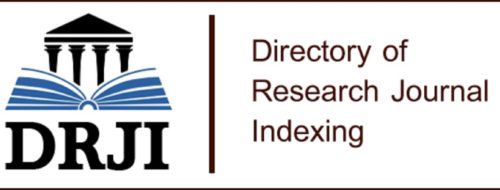Optimization of renewable energy integration in electrical systems using a genetic algorithm.
DOI:
https://doi.org/10.56124/encriptar.v7i13.001Keywords:
Energy optimization, Genetic Algorithm, Renewable Energy SystemsAbstract
This study presents a theoretical model that introduces a hybrid method for the effective integration of renewable energies into electrical systems, combining initial value simulation with the Genetic Algorithm metaheuristic. Current optimization strategies are examined, highlighting the challenges and opportunities associated with optimizing sustainable energy systems. The primary objective of this proposal is to define a model that maximizes the incorporation of renewable energies and minimizes dependence on fossil fuels in electricity generation, thus promoting the transition to a cleaner, more diversified, and efficient energy matrix. The implications of this approach for such a transition are addressed, emphasizing the need to develop mathematical models capable of simulating and optimizing large-scale energy systems, progressively replacing fossil fuel-based technologies with renewable sources. This strategy offers promising prospects for the planning and operation of sustainable energy systems, as evidenced by the results obtained from validating the model with data focused on the City of Salta, Argentina.
Downloads
References
Abbas F., Habib S., Feng D. y Yan Z. (2018). Optimizing generation capacities incorporating renewable energy with storage systems using genetic algorithms. Electronics, 7(7), 100.
Ahmad T. y Zhang D., 2021. Renewable energy integration/techno-economic feasibility analysis, cost/benefit impact on islanded and grid-connected operations: A case study. Renewable Energy, 180, 83-108.
CAMMESA – Potencia Instalada | Renovables (https://despachorenovables.cammesa.com/potencia-instalada/)
da Silva D. J., Belati E. A. y López-Lezama J. M. (2023). A mathematical programming approach for the optimal operation of storage systems, photovoltaic and wind power generation. Energies, 16(3), 1269.
Gusain C., Tripathi M. M. y Nangia U. (2023). Study of meta-heuristic optimization methodologies for design of hybrid renewable energy systems. Thermal Science and Engineering Progress, 39, 101711.
Jesse B. J., Heinrichs H. U. y Kuckshinrichs W. (2019). Adapting the theory of resilience to energy systems: a review and outlook. Energy, Sustainability and Society, 9, 1-19.
Liu X., Liu Y., Liu J., Xiang Y. y Yuan X. (2019). Optimal planning of AC-DC hybrid transmission and distributed energy resource system: Review and prospects. CSEE Journal of Power and Energy Systems, 5(3), 409-422.
Mechleri E. y Arellano-Garcia H. (2018). A mathematical programming approach to optimal design of smart distributed energy systems. In Computer Aided Chemical Engineering Vol. 44, pp. 2521-2526.
Ministerio de Energía y Minería. (2021) (https://www.minem.gob.ar/www/833/25871/precios-adjudicados-del-programa-renovar)
Rabe M., Bilan Y., Widera K. y Vasa, L. (2022). Application of the linear programming method in the construction of a mathematical model of optimization distributed energy. Energies, 15(5), 1872.
Sinsel S. R., Riemke R. L. y Hoffmann V. H. (2020) Challenges and solution technologies for the integration of variable renewable energy sources—a review. Renewable Energy, 145, 2271-2285.
Ssekulima E. B., Anwar M. B., Al Hinai A. y El Moursi M. S. (2016). Wind speed and solar irradiance forecasting techniques for enhanced renewable energy integration with the grid: a review. IET Renewable Power Generation, 10(7), 885-989.
Worighi I., Maach A., Hafid A., Hegazy O. y Van Mierlo, J. (2019). Integrating renewable energy in smart grid system: Architecture, virtualization and analysis. Sustainable Energy, Grids and Networks, 18, 100226.
Zhang J., Zhao L., Deng S., Xu W., y Zhang Y. (2017). A critical review of the models used to estimate solar radiation. In Renewable and Sustainable Energy Reviews, vol 70 pp. 314 –329.
Published
How to Cite
Issue
Section
License
Copyright (c) 2024 Scientific Journal of Informatics ENCRYPT - ISSN: 2737-6389.

This work is licensed under a Creative Commons Attribution-NonCommercial-ShareAlike 4.0 International License.















